Diaspora
A Mobile Library Helps Boost Literacy Among Pupils in DR Congo

In a move to promote reading and boost literacy among school pupils in the Democratic Republic of Congo, a mobile library called Kitabus has been launched by the French Institute of Bukavu in Eastern DRC. The name Kitabus is derived from the Swahili word for book, “Kitabu,” and the English word “bus.” This mobile library offers a diverse collection of books, including novels, fables, manga, and educational manuals, all aligned with the Congolese education curriculum.
The mobile library aims to address the limited access to reading materials in the city, which has fewer than five public libraries despite having a population of over three million people. Kitabus visits schools in the city, providing pupils with an opportunity to read and develop a love for books. The pupils are usually given two hours to read as many books as they can, both inside the bus and in an outdoor area set up in the school courtyard.
The mobile library has been well-received by both pupils and teachers. Pupils are excited to have access to a wide range of books beyond their usual textbooks. For instance, Bizimana Johanna, a pupil at Le Progress School Complex, expressed her excitement about reading “L’atelier de Roxanne” and how it has helped her develop a love for reading and writing. Teachers also appreciate the mobile library initiative, which they believe will help pupils develop a reading culture and improve their vocabulary and oral expression skills. Patrick Zezé Irengle, a school teacher, emphasized the importance of reading in helping young people become autonomous and develop their potential.
The Director of Le Progres School Complex, Modeste Bushishi, sees the mobile library initiative as a great way to en-gage pupils during their free time and contribute to strengthening the Congolese educational system. The system faces challenges in implementing its policy of free basic education, and initiatives like Kitabus are seen as crucial in promot-ing a love for reading and learning among pupils.
Kitabus is the first mobile library initiative in the Democratic Republic of Congo, and it is hoped that it will pave the way for more such initiatives in the future. The project is supported by ENABEL, which believes that basic education
is key to addressing poverty and preparing young people for the developmental challenges they will face in the future. In a similar initiative, UNICEF has also supported mobile libraries in the DRC, which have been credited with improving school results among participating children. Matthias Assani, the coordinator of the Francophone space,
acknowl-edged the role of UNICEF in supporting their mobile library initiative, which has enabled them to take books to pupils who enjoy reading. Overall, the Kitabus mobile library initiative is a welcome development in the promotion of literacy and a love for reading among school pupils in the Democratic Republic of Congo. It is hoped that this initiative will be replicated in other parts of the country and will contribute to the development of a more literate and educated population
Diaspora
11 Killed, 14 Injured in Mass Shooting at South African Hostel
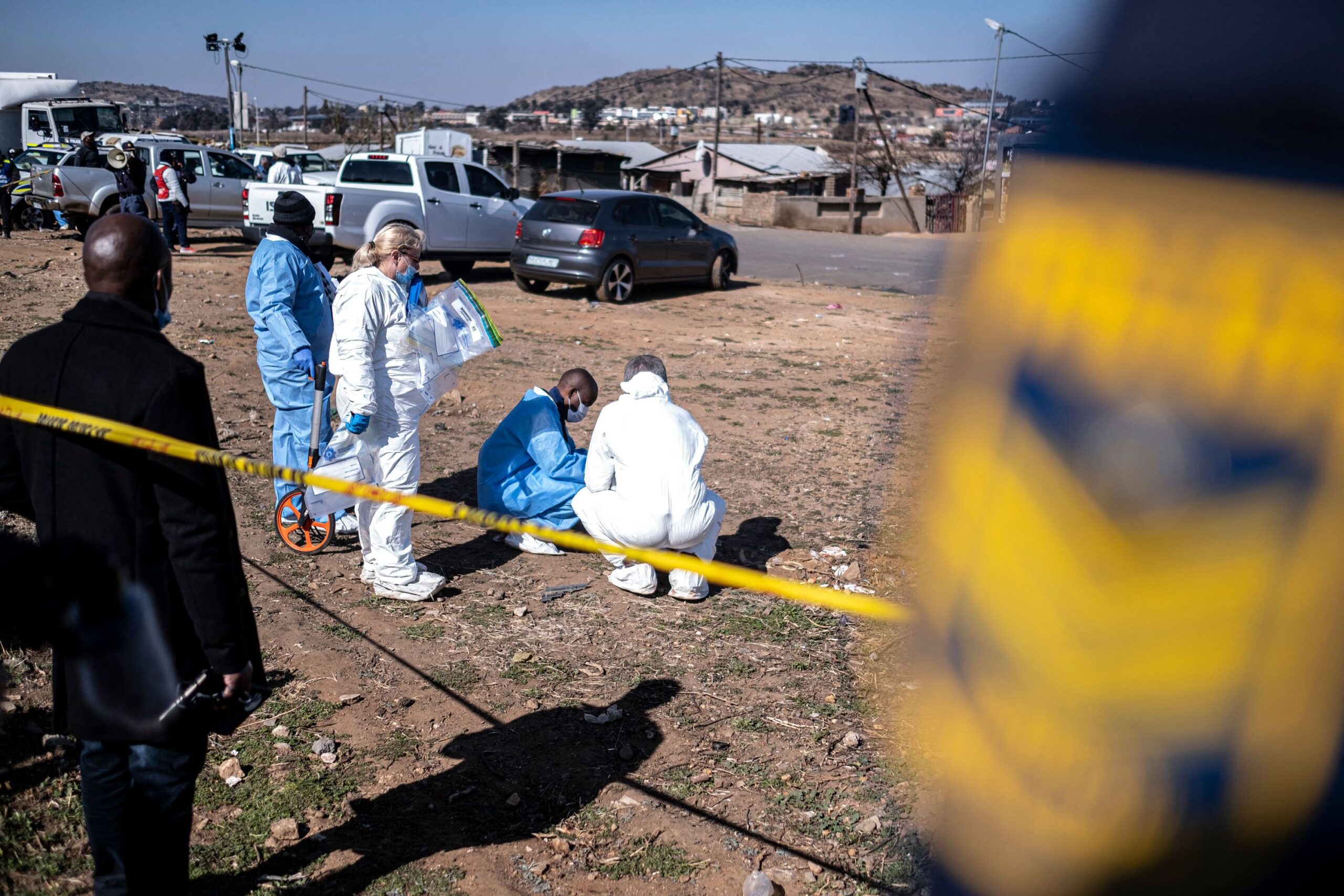
11 Killed, 14 Injured in Mass Shooting at South African Hostel
At least 11 people, including a three-year-old child, have been killed in a mass shooting at a hostel in Saulsville township, west of Pretoria, South Africa’s capital.
Police spokesperson Brigadier Athlenda Mathe said three unidentified gunmen stormed the premises around 4:30am on Saturday and fired “randomly” at a group of people who were drinking.
A 12-year-old boy and a 16-year-old girl were also among the dead.
Mathe confirmed that 25 people were shot in total, with 14 others wounded.
No arrests have been made, and the motive for the attack remains unclear.
Authorities described the venue as an “illegal shebeen,” noting that many mass shootings in the country occur in such unlicensed liquor spots.
Police shut down 12,000 illegal outlets between April and September and arrested more than 18,000 people nationwide.
South Africa continues to battle soaring violent crime.
According to UN data, the country recorded a murder rate of 45 per 100,000 people in 2023–24, while police statistics show that 63 people were killed daily between April and September.
Diaspora
Benin Foils Military Coup Attempt, 14 Arrested
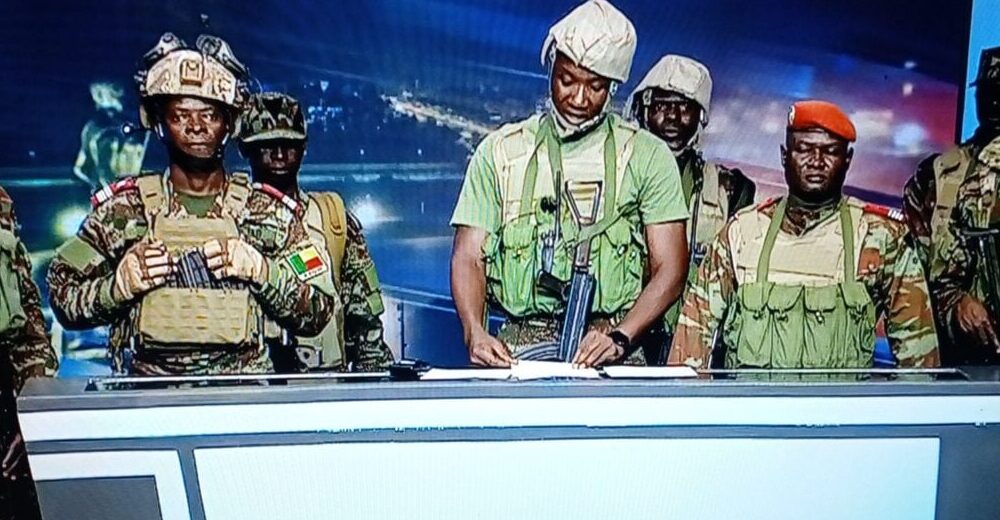
Benin Foils Military Coup Attempt, 14 Arrested
The government of Benin says it has thwarted an attempted coup after a group of soldiers tried to seize power in the early hours of Sunday.
Interior Minister Alassane Seidou, in a televised address, said the armed forces “remained committed to the republic” as loyalist troops moved swiftly to suppress what he described as “a mutiny aimed at destabilising the state and its institutions.”
Earlier, the renegade soldiers, led by Lt-Col Pascal Tigri, briefly took over the national television station and announced that President Patrice Talon had been removed.
It was reported that gunfire erupted near the presidential residence in Porto-Novo, while journalists at the state broadcaster were held hostage for several hours.
A presidential adviser later confirmed that Talon was safe, dismissing rumours that he had sought refuge at the French embassy.
French diplomats also denied the reports.
Government spokesperson Wilfried Leandre Houngbedji told Reuters that 14 people had been arrested so far.
A journalist in Cotonou said 12 of those detained were involved in storming the TV station, including a previously dismissed soldier.
The attempted takeover triggered heavy security deployment across Cotonou, with helicopters hovering overhead and major roads cordoned off.
Foreign embassies, including those of France, Russia, and the United States, issued advisories urging citizens to stay indoors.
In their broadcast, the rebel soldiers accused Talon of neglecting worsening insecurity in northern Benin, where militants linked to Islamic State and al-Qaeda have carried out deadly attacks near the borders with Niger and Burkina Faso.
They also protested rising taxes, cuts to public healthcare, and alleged political repression.
President Talon, 67, who came to power in 2016 and is expected to leave office next year after his second term, has faced growing criticism over democratic backsliding, including the barring of key opposition figures and recent constitutional amendments.
Sunday’s events add to a worrying pattern of military takeovers across West Africa, with recent coups in Burkina Faso, Guinea, Mali, Niger, and, just last week, Guinea-Bissau.
Ecowas, the AU, and Nigeria have all condemned the attempted coup in Benin, calling it a threat to regional stability.
Nigeria described the failed plot as a “direct assault on democracy” and commended Benin’s security forces for protecting the constitutional order.
Diaspora
Killings in Nigeria: ‘Enough is Enough,’ SNG-USA Cries Out from U.S. Capitol

Killings in Nigeria: ‘Enough is Enough,’ SNG-USA Cries Out from U.S. Capitol
By Boniface Ihiasota, USA
The Save Nigeria Group USA (SNG-USA) has intensified calls for urgent international action to halt what it described as a full-scale genocide against Christians in Nigeria.
Its President, Stephen Osemwegie, led a major rally at the U.S. Capitol Grounds in Washington, D.C., drawing Nigerians, Americans, clergy, human rights advocates and members of the diaspora to stand in solidarity with victims of violence.
Addressing the crowd in frigid weather, Osemwegie said millions of Christians across several Nigerian states live under constant threat of attacks.
He detailed a series of atrocities, including beheaded pastors, torched churches, abducted women and children, razed villages and wiped-out communities, insisting that the violence had long surpassed communal clashes and now represented a coordinated effort to annihilate Christian populations.
He cited the recent abduction of more than 300 pupils of Saint Mary’s Catholic School as evidence of the systematic nature of the attacks.
Osemwegie accused the Nigerian government of failing to uphold its constitutional responsibility to protect citizens, describing the 1999 Constitution as “a document imposed by soldiers” that had created a centralized system empowering extremists while weakening regional autonomy and endangering minority communities.
He called for a return to a constitutional framework similar to that of 1960, which he said would restore balanced governance and empower regions to safeguard their people.
The SNG-USA president commended U.S. President Donald J. Trump for redesignating Nigeria as a Country of Particular Concern (CPC), praising him for moral clarity and willingness to act when others remained silent.
He urged the U.S. Government to enforce the designation fully, including sanctions, visa restrictions, and asset freezes against individuals, officials, and networks allegedly involved in terror financing, mass displacement, or the concealment of atrocities.
Osemwegie also called on U.S. Senate and House leadership to act with urgency, warning that every delay could cost more lives.
He appealed to Senate Republican Leader John Thune to advance Senator Ted Cruz’s legislation targeting violent extremist groups and their sponsors, and urged House Speaker Mike Johnson to move forward with resolutions formally recognising the killings of Christians in Nigeria as genocide.
He further demanded the release of thousands of pages of FBI documents allegedly related to criminal investigations involving Nigeria’s President, stressing that transparency was essential for both American and Nigerian interests.
Highlighting the case of Sunday Jackson, a Christian farmer reportedly sentenced to death for defending his community from attacks, Osemwegie said the situation reflected a justice system in which “killers walk free while defenders face execution.”
He emphasised that the movement was driven by conscience and divine instruction, and vowed that the group would continue to speak for the voiceless and defend the persecuted.
Following the rally, SNG-USA issued a statement reaffirming its position and thanking American political leaders for engaging with the group.
It expressed appreciation to Donald Trump for considering its appeals, to Senators Thune and Ted Cruz for their leadership, and to House Speaker Mike Johnson and Congressmen Riley Moore and Chris Smith for meeting with its delegation.
The group also offered condolences to Congressman Moore and the people of West Virginia over the deaths of recently fallen members of the West Virginia National Guard.
The statement revealed that senior officials of the U.S. Department of State held a two-hour closed-door meeting with SNG-USA representatives, during which survivors of attacks provided firsthand testimonies.
The organisation expressed optimism about the State Department’s willingness to listen and commitment to global religious freedom.
SNG-USA also acknowledged U.S. media outlets for hthe crisis. It thanked clergy, human rights organisations, Nigerian-American communities, and other supporters who participated in the rally despite freezing temperatures.
Osemwegie concluded by pledging that the group would remain resolute until justice is served, the killings stop, and displaced Christians are restored to their homes. He declared, “We will not stop until the genocide ends.”
-
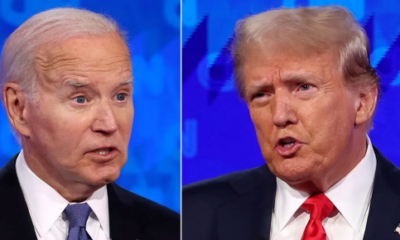
 Politics1 week ago
Politics1 week agoUS Shooting Sparks Controversy Over Afghan Vetting as Trump Blames Biden
-

 News1 week ago
News1 week agoIsraeli PM Netanyahu Seeks Presidential Pardon Amid Ongoing Corruption Trials
-
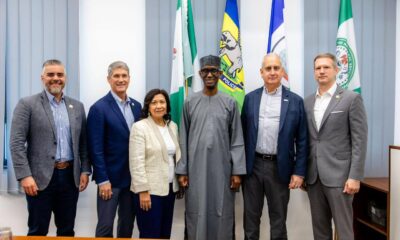
 News2 days ago
News2 days agoSecurity Concerns: Ribadu Hosts U.S. Congressional Delegation in Abuja
-
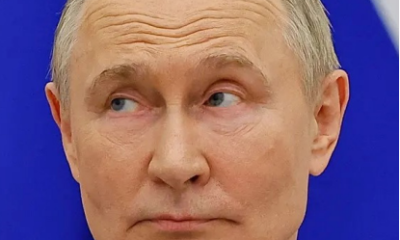
 Business1 week ago
Business1 week agoRoyal Navy Intercepts Russian Warship Amid Surge in Moscow’s Naval Activity
-

 Analysis2 days ago
Analysis2 days agoBeyond A Defence Minister, by Alabidun Shuaib AbdulRahman
-

 Analysis1 week ago
Analysis1 week agoTime to Defend Every Nigerian Life, by Boniface Ihiasota











